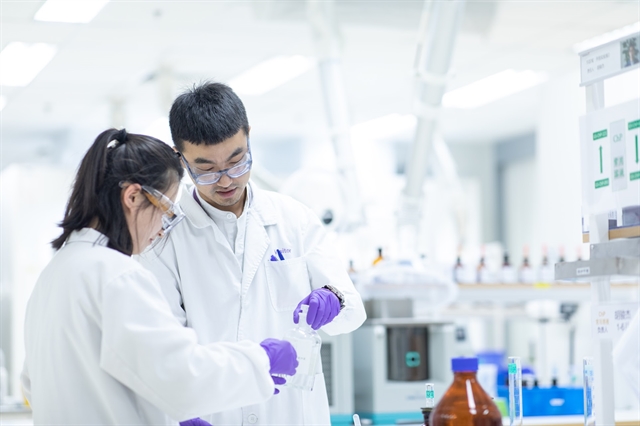 Society
Society


|
| Experts advise to change routine biomarker testing for all non-small cell lung cancer patients in Asia. — Photo Courtesy AstraZeneca |
HCM CITY — Routine biomarker testing for all non-small cell lung cancer patients in Asia may help to improve diagnosis, experts said.
A new expert consensus published in the Journal of Thoracic Oncology reported that diagnosis and treatment of the most common form of lung cancer in Việt Nam and Asia requires urgent change to better account for patient characteristics that are unique to the region.
It also reported that about 60 per cent of the world’s lung cancer cases occur in Asia, with over 26,200 cases diagnosed and almost 23,800 deaths in Việt Nam alone in 2020.
Currently, lung cancer is the second leading type of cancer in Việt Nam, and the number two cause of death. However, current diagnosis and treatment guidelines in Asia and Việt Nam are modelled on those from the United States and Europe, where patient and disease characteristics differ.
For instance, one particular gene, called the epidermal growth factor receptor (EGFR), is mutated at a higher rate in Asia in over 50 per cent of non-small cell lung cancer patients.
Đặng Huy Quốc Thình, vice director at HCM City Oncology Hospital, said: “By estimation, the aggregate five-year lung cancer survival rate in Việt Nam is less than 15 per cent. As we work towards the ambition of eliminating lung cancer as a cause of death, routine biomarker testing is a must not only in later stages of cancer, but also in early stages as it helps healthcare providers understand patients’ characteristics and offer them the most suitable treatment. This will not only help to significantly improve patient outcomes, but also to lessen the burden for the healthcare system in caring for patients at later stages.”
Identifying the EGFR status of a patient can help doctors determine the most appropriate treatments for them, making an EGFR mutation an ideal ‘biomarker’ to guide treatment decisions.
However, approximately two-thirds of healthcare professionals surveyed in the region state that less than half of their lung cancer patients undergo testing for biomarkers, according to the Journal of Thoracic Oncology.
While smoking is the leading lung cancer risk factor, younger patients in Asia with lung cancer, especially women, are more likely to have never smoked compared with other regions around the world.
Tetsuya Mitsudomi, professor at Global Research Alliance Centre and Thoracic Surgery, Kindai Hospital, Japan, said: “Routine biomarker testing for all non-small cell lung cancer patients in Asia may help to improve diagnosis and reduce unnecessary procedures and ensure the most beneficial treatment option for each patient, and therefore the best health outcomes.”
Although the lung cancer death rate has been steady or decreasing in Western countries, it has been increasing in Asia for the past two decades. Experts believe the high cancer death rate in low- and middle-income Asian countries can be attributed to several factors, including patients not always being able to access the right treatment.
The report was the result of extensive discussion among experts from several Asian countries, backed by the Lung Ambition Alliance (LAA), a non-profit collaboration founded by AstraZeneca, the Global Lung Cancer Coalition (GLCC), Guardant Health and the International Association for the Study of Lung Cancer (IASLC). — VNS




